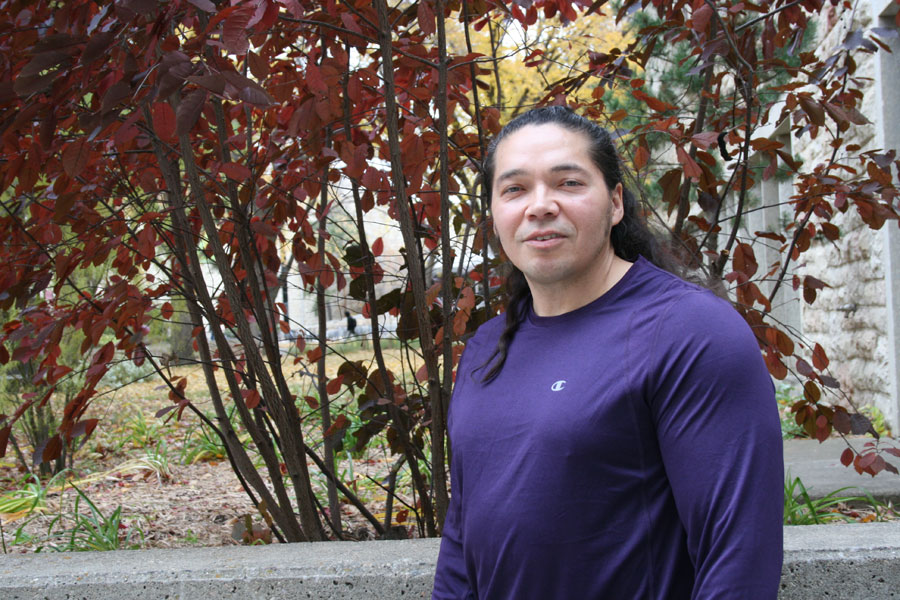Bringing community together through justice process
John Hansen joined the U of S in July 2012 as an assistant professor in the Department of Sociology specializing in justice, crime and society within the context of Indigenous knowledge and non–Western models of justice.
By University Communications "It involves working with the criminal justice system, but it's really a community justice process where members of the community come together and they deal with victims and offenders with traditional teachings in a way that emphasizes healing, repairing harm, and restoring balance," he explained.
"It involves working with the criminal justice system, but it's really a community justice process where members of the community come together and they deal with victims and offenders with traditional teachings in a way that emphasizes healing, repairing harm, and restoring balance," he explained.Hansen is a member of the Opaskwayak Cree Nation of northern Manitoba, son of a Danish father and Cree mother. He grew up in Thompson, and spent summers at his grandmother's house on the reserve. He completed a general undergraduate degree at Brandon University before pursuing a bachelor's degree in education with the Saskatchewan Indian Federated College (now the First Nations University of Canada). He completed his master's degree at the U of S and his doctorate at the University of Regina. After working as an instructor for eight years, he was promoted to associate professor with the University College of the North at The Pas before accepting his current position at the U of S.
"I knew I was interested in Indigenous issues back in the late 80s as an undergraduate student when I could study injustices in the world," he said. This includes questions such as overrepresentation of Indigenous people in prisons, addictions, and misunderstandings between cultures that can lead to injustice.
"Some say an Indigenous researcher conducting that kind of research is totally un-objective," Hansen said. "I agree. Objectivity is not a word that applies to my research in any way. I hope it never will.
"The U of S has a very solid reputation among universities right across Canada," he continiued. "There are lots of interesting things going on in Indigenous scholarship – Indigenous studies and Indigenous issues. I think this is a much-needed field and at the U of S, it's more than just lip service. They're actually putting it into practice."

